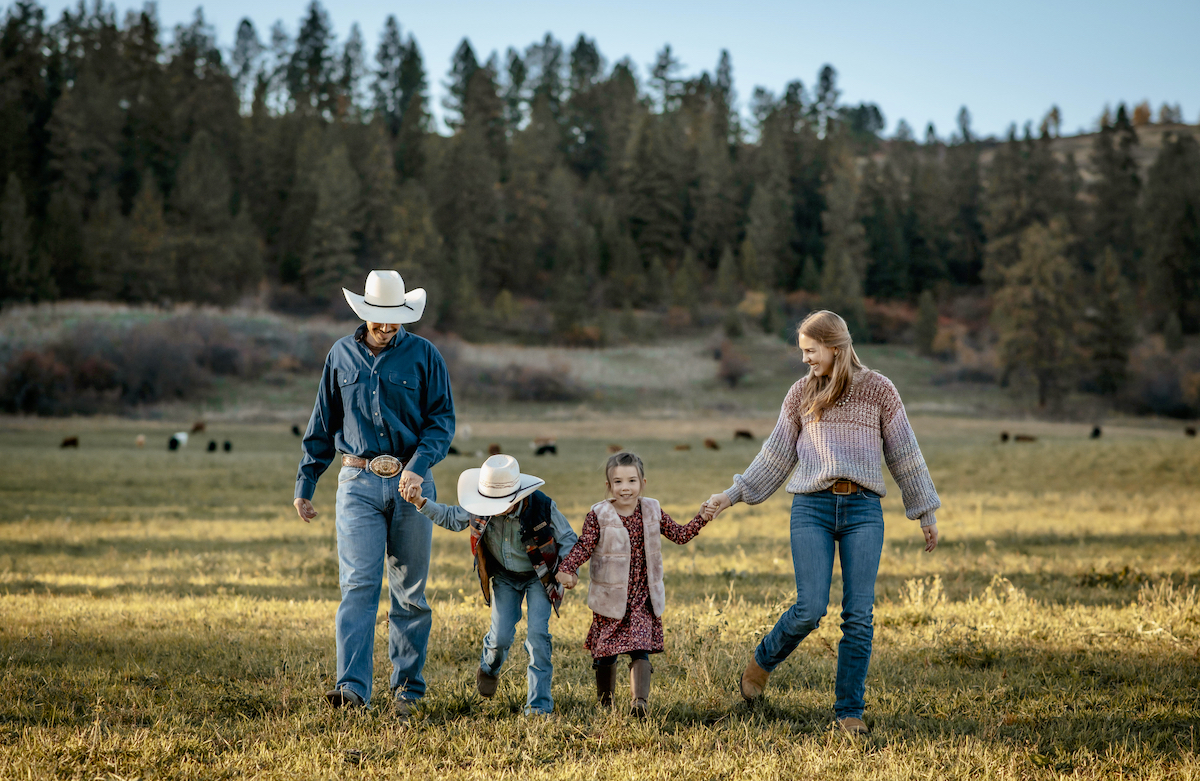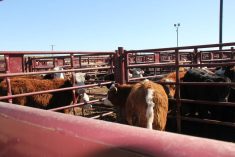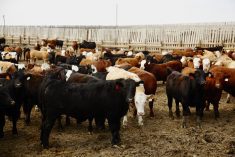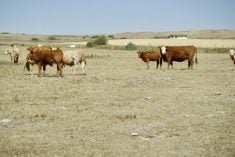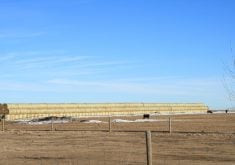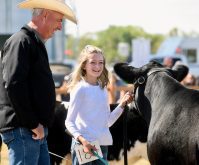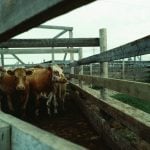Cassie Marchand entered the Canadian Cattle Association’s mentorship program expecting to learn about building public trust between individual producers and consumers. Instead, she saw first-hand how beef industry players are working on the big picture.
Marchand was one of 16 candidates selected for the 2023-24 Canadian Cattle Young Leaders (CYL) program. The CYL program is a national program through the Canadian Cattle Association that matches people ages 18-35 with industry mentors and provides training opportunities. Marchand and the rest of her cohort completed their mentorships in August 2024.
Marchand is a fourth-generation rancher from Keremeos, B.C., who works with her family in Keremeos. She also ranches with her husband, their two kids, ages six and eight, and her husband’s family in Vernon, B.C. Working on the ranch with and alongside family is important for Marchand.
Read Also
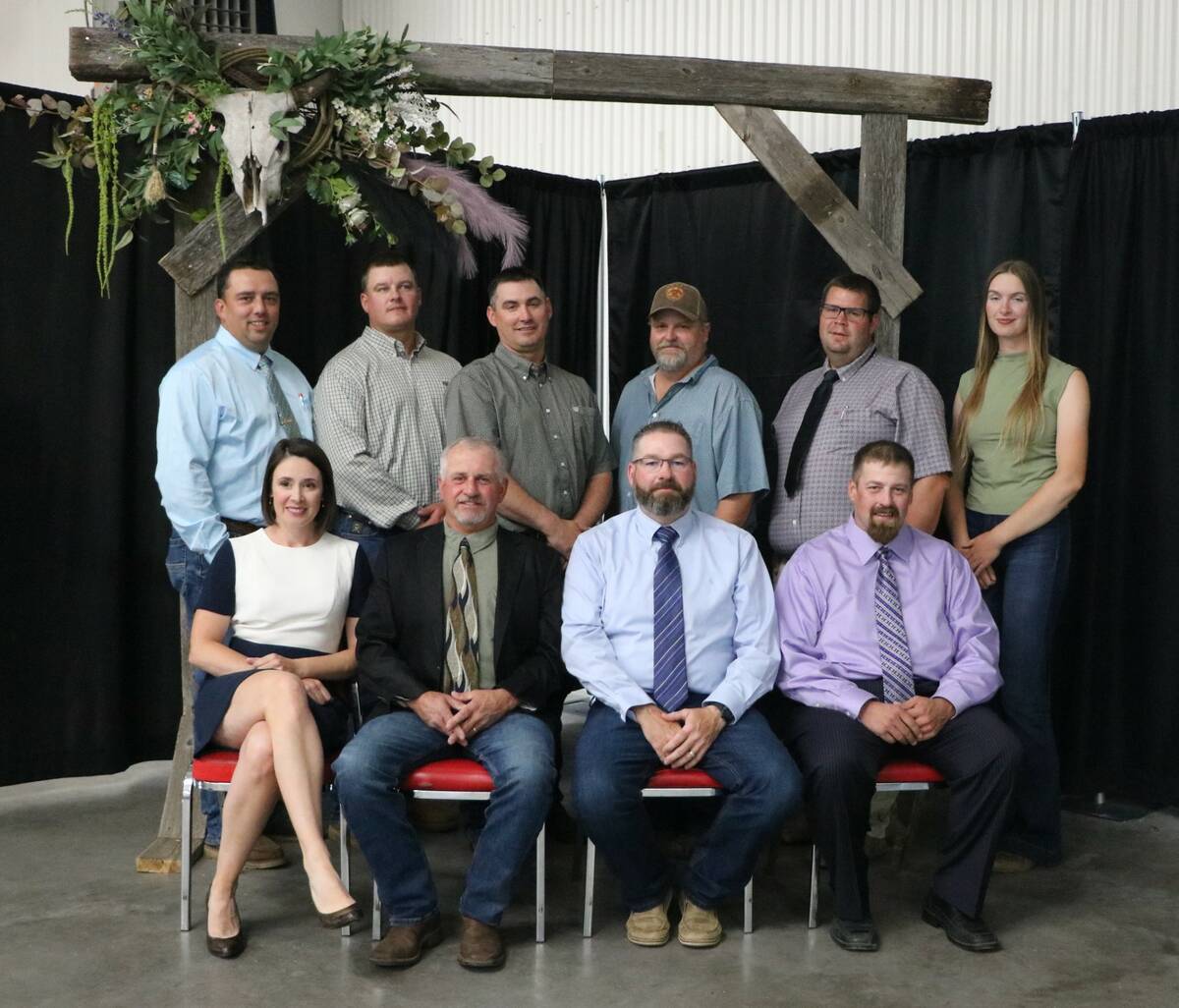
Purely Purebred: Outstanding Young Angus Breeder, Junior Limousin Herd Building Incentive winners and more
News from Canada’s purebred beef industry, including show results, board election results, research and more
“The important part for me is I love the way I grew up, having my grandparents and family around. Giving my kids the opportunity to have the same kind of life is really special to have that continue on.”
But Marchand is busy off the ranch, too. For the past 13 years, she has been working as an ag lender with a major bank serving the North Okanagan area.
“Agriculture is my personal life, and my corporate life.”
- RELATED: So, you want to be a mentor?
In addition, she is involved with the B.C. Cattlemen’s Association. For the past four years, Marchand sat on the public affairs and education committee, promoting the beef industry throughout the province to the public and in the schools, and connecting the public with producers. She also serves as a director with the local North Okanagan Livestock Association.
“It’s a lot of fun to have all those different insights. A lot of them overlap and add value to each other, in different ways.”
Scaling up public trust
It took Marchand some time to get involved in the CYL program. She had close friends and family in the program early on. “Everyone had really great things to say about it.”
It just was one of those things she always thought would be good for her to do, but just kept putting off applying. Then she came close to aging out of the program, and she realized if she wanted to do it, she’d better apply.
Marchand’s nine-month mentorship culminated at the Canadian Beef Industry Conference in Saskatoon. She built a great relationship with her mentor, Sarah Wray. Wray is the owner of Story Brokers Media House and does a lot of work within the beef industry.

Although they hadn’t met in person, they worked together through phone calls and online meetings. Wray shared online resources and helped Marchand find different ways to look at things.
“She is definitely someone I learned a lot from. She’s been so supportive of everything I’ve done and open to sharing her insights, time and giving lots of encouragement throughout the process, as well.”
Wray is someone Marchand said she will continue to work with and bounce ideas off in the future. “I don’t really see it as ending.”
Each of the CYL participants has a different focus area they work on with their mentor. Marchand’s project was on building public trust.
“It grew from building public trust with the direct producer and consumer to the bigger picture of the beef industry — understanding some of the key players in the beef industry and the partners we work with and how it’s promoted on a larger scale instead of with an individual.”
She got to do something a little different than most people and became involved with a project with McDonald’s Canada. McDonald’s Canada has been a major supporter of the beef industry and also a platinum partner with the CYL program.
“What we wanted to do was highlight the partnership that they have and the value that they bring (to the CYL program),” Marchand said. She helped create a social media campaign that will be released soon. The campaign features short videos highlighting McDonald’s Canada’s support of the CYL program, and the value that the CYL participants get out of the program, as well as McDonald’s Canada’s corporate perspective on the program.
“It was fun to work on a real, live project.”
She found it very interesting to see what it’s like behind the scenes working with a larger company, including the back-and-forth, and the review processes before projects are released to the public. Although it wasn’t something she’d originally planned to do, it was a good learning experience.
Having that back-and-forth partnership helps the industry give back and the beef industry grow and head in the right direction. She feels that continuing to build public trust within the beef industry in every interaction — and it doesn’t have to be large social media campaign projects —helps producers represent the beef industry. She thinks this approach will help grow the beef industry.
She also shares information about her family’s ranch online through social media and does direct-to-consumer beef sales.
“I use that knowledge in a lot of different ways. Trying to think of it as not one thing is better than another, but sharing the story of what the whole industry is doing and the good things that are being done across the country.”
Immersed in the program
It’s only when you become fully immersed in the CYL program that you see what’s really going on, says Marchand. Participants see how many people they have in their network, which continues to grow, even after graduation. They become part of email lists that include job opportunities, travel opportunities and the chance to represent the beef industry in so many ways.
“You can learn from so many people.”
CYL gives participants a voice to connect with key people who make decisions and policy. “It’s very powerful. The network of people was bigger than what I expected it to be.”
Marchand was honoured to be the recipient of the second annual Reg Schellenberg Next Generation Legacy Award, which was awarded at the Canadian Beef Industry Conference in August. The CYL participants nominate a peer for the award based on criteria established by the Schellenberg family, and top nominees were interviewed. Marchand was awarded a travel bursary to attend the 2025 Saskatchewan Beef Industry Conference and a belt buckle donated by the Schellenberg family ranch, Perrin Ranching.
“Family is such a large component of what we do. Carrying on the legacy of what people have done before us… is such a huge part for me. And talking with the Schellenberg family, it’s a huge part of who they are. It’s an honour to be recognized and wear the buckle with pride.”
The value that a program like CYL brings to the beef industry and the people who started the program and continue to support it and sponsor it, is significant.
“When I think about who I met, who have gone through this program, there are some people who are making a difference, and seeing the ‘leap’ this program can give everybody is really neat.”
Although it took Marchand a long time to apply to the program, she’d like to nudge anyone thinking about applying.
“It opens up new directions for you and it’s customizable to whatever your focus is on. I encourage anyone sitting on the fence to take the time to apply for the program.”
Marchand would also like to thank her mentor, Sarah Wray, and her family for their support while she was participating in the program.
– Jill Burkhardt, her husband Kelly and their three children own and operate a mixed farm near Gwynne, Alta. Originally hailing from Montana, Burkhardt has a range management degree from Montana State University.

